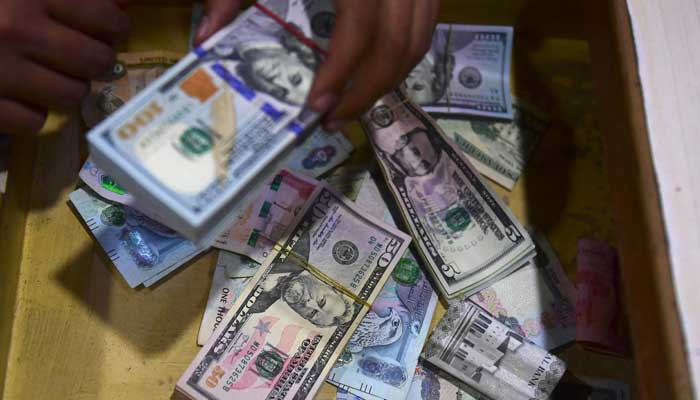In major move, govt approves policy to attract foreign investment
Cabinet approves Pakistan Investment Policy 2023, aiming to bring $20-25 billion in investment
ISLAMABAD: As cash-strapped Pakistan seeks new financing avenues, the federal government approved a major economic policy to attract foreign inflows, sources told Geo News Saturday.
The cabinet Friday approved the Pakistan Investment Policy 2023 through the circulation of a summary, which aims to bring $20-25 billion in investment, the sources said.
The people, familiar with the matter, said the policy was readied after consultations with the World Bank, International Finance Corporation, and provincial and federal institutions.
In the new policy, the minimum equity rate for foreign investment has been abolished, the sources said. Foreign investors will be allowed to invest in all sectors except six, the sources said, without specifying which ones.
Under the new policy, foreign investors will be allowed to remit the entire profit abroad in their own country's currency, they said. "Foreign investors will be given special protection," the sources added.
The development comes days after Minister of State for Petroleum Dr Musadik Malik said that Saudi Arabia and the UAE were taking a keen interest in Pakistan's information technology, agriculture and mining sectors.
The kingdom planned to fix $24 billion in funds for investment purposes, while the UAE allocated $22 billion funds for exploring opportunities in three sectors of Pakistan, the state minister stated in an interview with a private television channel.
Pakistan has been looking for ways to shore up its reserves as it goes through one of its most severe economic crises. The intensity lessened after the government signed a deal with the International Monetary Fund (IMF) last week.
But global rating agencies believe that the IMF's $3 billion stand-by arrangement (SBA) would provide some relief for Pakistan's strained public finances, but the country faces significant hurdles to sustaining economic stability and growth.
Pakistan's economy has been battered by the coronavirus pandemic, floods, high inflation and social unrest. The country's foreign exchange reserves are very low at $4.46 billion, while its external debt repayments will remain high for the next few years, with about $25 billion due in fiscal 2024.
-
Security forces gun down 30 terrorists in multiple IBOs in KP: ISPR
-
MQM-P calls for new province in Sindh
-
US report validates Pakistan military edge over India: PM
-
Banned TTP poses serious threat to Pakistan security: UNSC panel
-
CM Afridi clarifies remarks on by-poll after ECP requests army deployment
-
Dubai sees 3.2m Pakistani passengers in 2025 as airport sets new milestone
-
Security forces kill 23 Indian proxy terrorists in KP's Kurram
-
Pakistan to construct island to boost oil exploration: report












